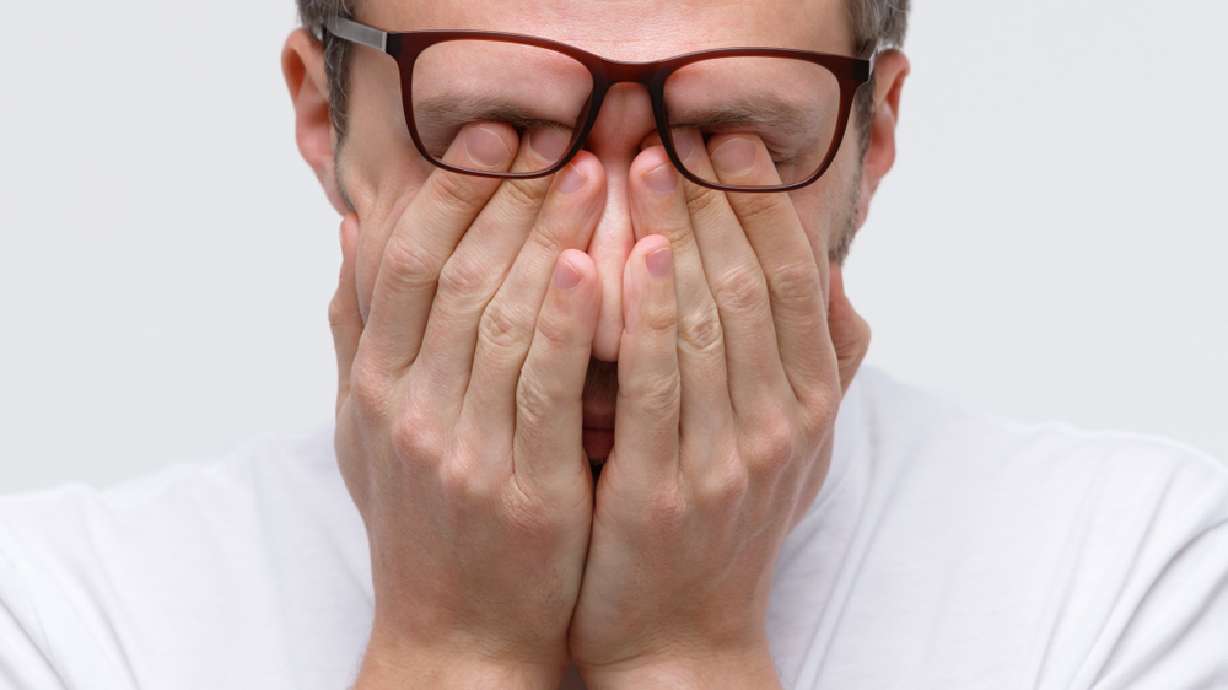Estimated read time: 4-5 minutes
This archived news story is available only for your personal, non-commercial use. Information in the story may be outdated or superseded by additional information. Reading or replaying the story in its archived form does not constitute a republication of the story.
Eyes come in all shapes and colors. They can be the clearest blue or the richest brown – and many shades in-between. But no matter the aesthetics, eyes can also be annoyingly scratchy, itchy, red and irritated – and those conditions are becoming increasingly commonplace.
In fact, according to Ophthalmology Times, while an estimated 16 million Americans have been diagnosed with dry eye disease, the number of people suffering from the condition is likely higher – possibly up to half of all U.S. adults.
With that in mind, dry eye disease is now considered a "critical and significant public health issue" across the country, according to the same publication. If you're among the large percentage of Americans currently suffering from dry eyes, it's important to recognize the symptoms – and how to treat them.
Stinging, burning sensations
If you experience stinging and burning in your eyes, it's possible you're suffering from dry eye disease. Dry eye disease occurs when tear ducts either do not produce enough tears or do not produce the right kind of tears, according to Medical News Today. This can result in burning sensations within the eyes.
If your eyes frequently feel like they're on fire, it's important to see an eye doctor as soon as possible. Your doctor can prescribe medicated eye drops or artificial tears, which can help calm your eyes and alleviate the stinging and burning. Using a humidifier, taking breaks from the computer screen and avoiding smoke or smoking will also help. The eye experts at the Eye Institute of Utah recommend using cold artificial tears to help alleviate these symptoms.
Intermittent blurriness
The American Optometric Association (AOA) also lists blurry vision as a symptom of dry eyes. To prevent this annoying (and sometimes dangerous) intermittent blurriness, you should increase the humidity in your home, wear sunglasses outdoors, and avoid dehydration.
In addition to treatments like artificial tears or compresses, the AOA also recommends taking an omega-3 fatty acid supplement to help with this issue.
Watery eyes
It sounds a little counterintuitive, but watery eyes can actually be a symptom of dry eye disease. That's because tears are the eyes' natural remedy for irritation and inflammation. In healthy eyes, tears wash over the surface of the eyes each time they blink, then drain into the corners of the eyes. According to EverydayHealth, when eyes are dry, the irritation prompts the lacrimal glands to produce an abundance of tears, which overwhelm the natural drainage system and fall down the cheeks.
To combat watery eyes, you can try over-the-counter artificial tears, or see your eye doctor for prescription drops. If dry, watery eyes are worsened by allergies, taking an allergy medication can help you find some relief.

Mucus discharge
If you're waking up with stringy mucus around your eyes, or dry, crusty particles in the corners of your eyes, that could be symptomatic of dry eye disease. That's because natural tears, which are composed of water, oil and mucus, may differ in composition from emergency tears, which your body creates when your eyes are dry and irritated. When those emergency tears contain too much mucus, you'll find it in and around your eyes.
To help alleviate and loosen mucus around the eyes, you can hold a warm compress over your eyes for 3-5 minutes, according to Medical News Today. If you have enough mucus that your eyes are glued shut in the morning, you should see an eye doctor in order to rule out infection.
Eye redness
If there's one thing that never compliments your outfit of the day, it's a set of red eyes. Redness in the eyes can easily make you look older, tired and maybe even a little hungover.
According to Cleveland Clinic, you can combat redness caused by the irritation of dry eyes by holding cool compresses over your closed eyes and lightly massaging the eyelids. Additionally, your doctor may recommend natural tears or other prescription ointments specifically for your condition.
If you're suffering from the symptoms of dry eye disease, The Eye Institute of Utah can help. To make an appointment with one of the state's most renowned eye doctors, call 801-980-3592.









